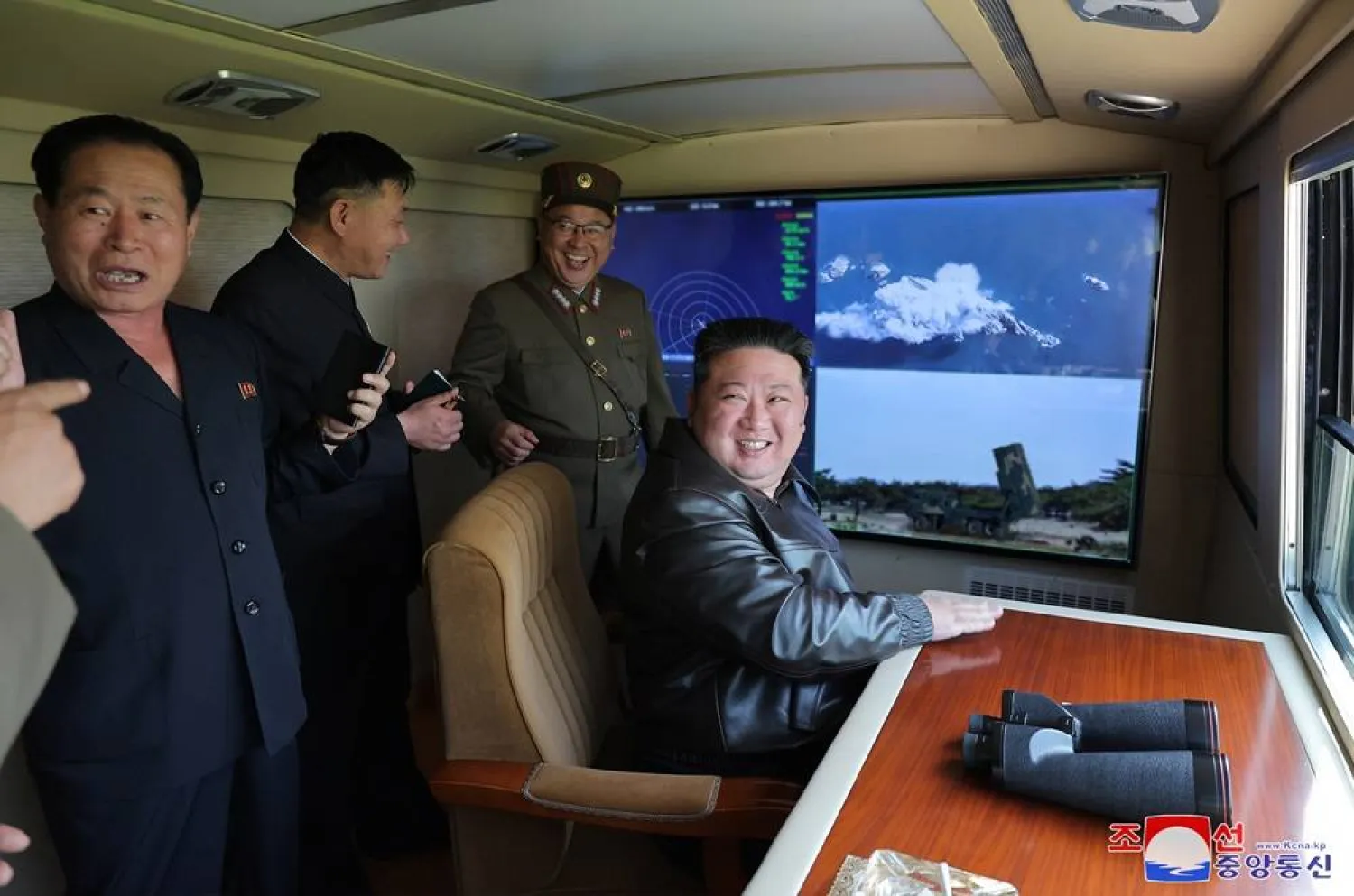North Korea has test-fired a tactical ballistic missile equipped with a "new autonomous navigation system", state media said Saturday, with leader Kim Jong Un vowing to boost the country's nuclear force.
Kim oversaw the Friday test-launch into the East Sea, also known as the Sea of Japan, on a mission to evaluate the "accuracy and reliability of the autonomous navigation system", Pyongyang's official Korean Central News Agency (KCNA) said.
The launch was the latest in a string of ever more sophisticated tests by North Korea, which has fired off cruise missiles, tactical rockets and hypersonic weapons in recent months, in what the nuclear-armed, UN-sanctioned country says is a drive to upgrade its defenses.
The Friday launch came hours after leader Kim's powerful sister Kim Yo Jong denied allegations by Seoul and Washington that Pyongyang is shipping weapons to Russia for use in its war in Ukraine.
Seoul's military on Friday described the test as "several flying objects presumed to be short-range ballistic missiles" from North Korea's eastern Wonsan area into waters off its coast.
The suspected missiles travelled around 300 kilometers (186 miles) before splashing down in waters between South Korea and Japan, the Joint Chiefs of Staff in Seoul said.
"The accuracy and reliability of the autonomous navigation system were verified through the test fire," Pyongyang's KCNA said Saturday, adding leader Kim expressed "great satisfaction" over the launch.
In a separate report released on Saturday, KCNA said Kim visited a military production facility the previous day and urged for "more rapidly bolstering the nuclear force" of the nation "without halt and hesitation".
During the visit, he said the "enemies would be afraid of and dare not to play with fire only when they witness the nuclear combat posture of our state", according to KCNA.
Pyongyang's nuclear force "will meet a very important change and occupy a remarkably raised strategic position" when its munitions production plan, aimed to be completed by 2025, is carried out, it added.
- Denial -
Seoul and Washington have accused North Korea of sending arms to Russia, which would violate rafts of United Nations sanctions on both countries, with experts saying the recent spate of testing may be of weapons destined for use on battlefields in Ukraine.
North Korea is barred by UN sanctions from any tests using ballistic technology, but its key ally Moscow used its UN Security Council veto in March to effectively end UN monitoring of violations, for which Pyongyang has specifically thanked Russia.
But leader Kim's sister Kim Yo Jong said Friday that Pyongyang had "no intention to export our military technical capabilities to any country", adding that the North's priority was "to make the war readiness and war deterrent of our army more perfect in quality and quantity".
She accused Seoul and Washington of "misleading the public opinion" with their allegations that Pyongyang was transferring arms to Russia.
The Friday launches come as Russian leader Vladimir Putin was in China on Friday, the final day of a visit aiming to promote crucial trade with Beijing -- North Korea's most important ally -- and win greater support for his war effort in Ukraine.
North Korea's latest weapons tests were likely intended to attract the attention of Putin while he was in China, said Ahn Chan-il, a defector-turned-researcher who runs the World Institute for North Korea Studies.
The North would benefit greatly from an expected visit by Putin to Pyongyang, and "they want their country to be used as a military logistics base during Russia's ongoing war (in Ukraine)", he told AFP.
Yang Moo-jin, president of the University of North Korean Studies in Seoul, said: "China and Russia's irresponsible handling of North Korea, riding on the new Cold War dynamics, is further encouraging Pyongyang's nuclear armament."
Inter-Korean relations are at one of their lowest points in years, with Pyongyang declaring Seoul its "principal enemy".
It has jettisoned agencies dedicated to reunification and threatened war over "even 0.001 mm" of territorial infringement.









